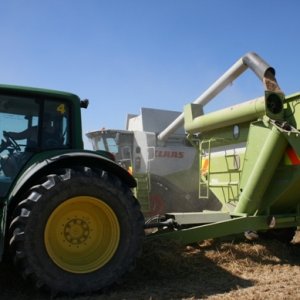THE NEW Zealand Transport Agency is reminding agricultural contractors they may need to apply for a work time variation to complete critical seasonal tasks such as spraying, harvesting or sowing.
“Work time restrictions are in place to protect against fatigue-related safety issues, but we know that during harvest periods there are times when contractors need flexibility to get the job done at the right time,” says NZTA’s regulatory systems manager Mark O’Donnell.
Applications are treated on their merits and, if a variation is granted, it enables contractors to extend one or two work days within a cumulative work period, offset against working fewer hours over the following days.
“The safety of staff and other road users remains the most important consideration. When work hours are extended the risk to safety increases. Employers must be aware of this increased risk and manage it carefully.”
Variations are valid for a year from date of issue and apply to drivers of specialist agricultural machines, including tractors, used in agricultural operations and to drivers of support vehicles such as trucks that are essential to complete the operation.
Examples of situations where they can be used include: harvesting a crop before a predicted storm which is likely to lead to significant product loss; spraying that can only be undertaken in the early morning or evening.
“The variation is not available for the transport of agricultural produce that is not a direct component of an agricultural operation. For example, a variation cannot be issued for moving stock, forestry or transporting milk.”
Work time restrictions and log book requirements are being considered as part of the Ministry of Transport’s Agricultural Vehicle Review, announced recently. As a result of the feedback received so far, the key areas that are being looked at include:
- Work time restrictions and log book requirements
- Over-dimension and overweight vehicle restrictions
- Speed limits and driver licensing requirements
- Vehicle standards and inspection requirements
- The structure of the relevant transport laws
Industry stakeholders have also identified opportunities to improve road user safety.
More information on work time variations and an application form is available on the Rural Contractors New Zealand website http://www.ruralcontractors.org.nz/











